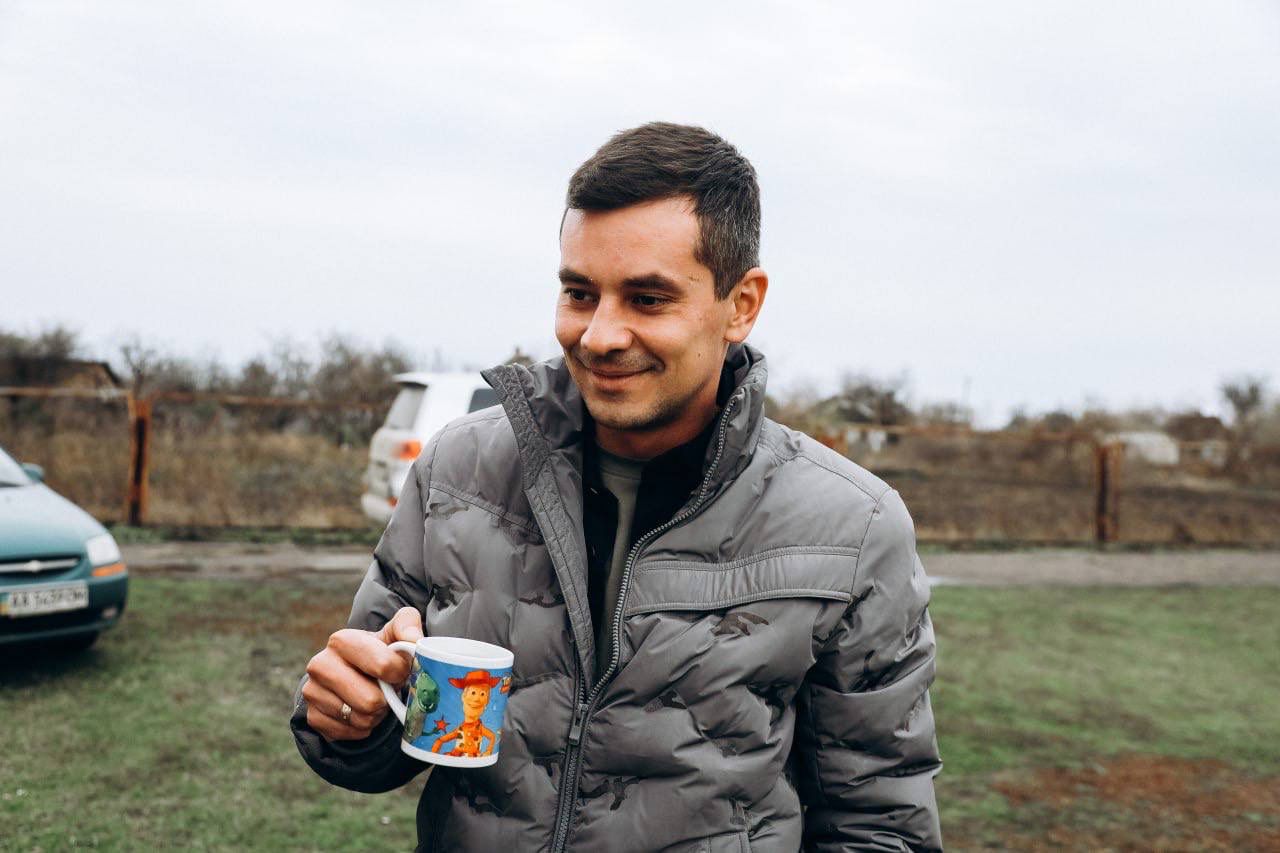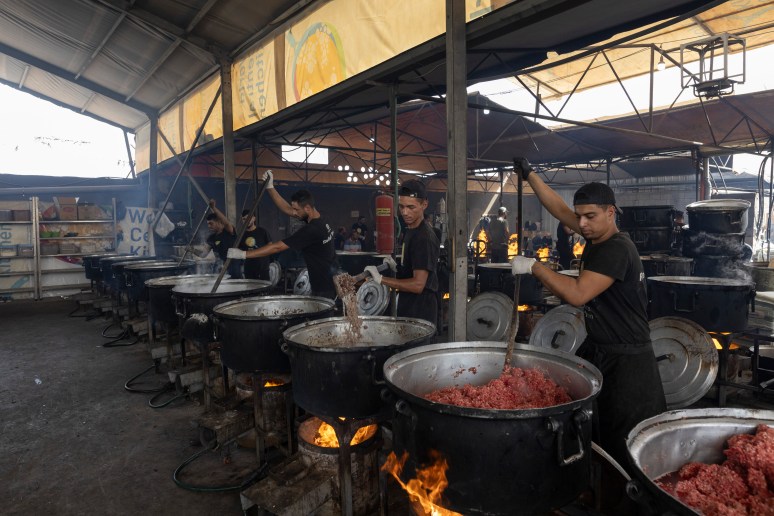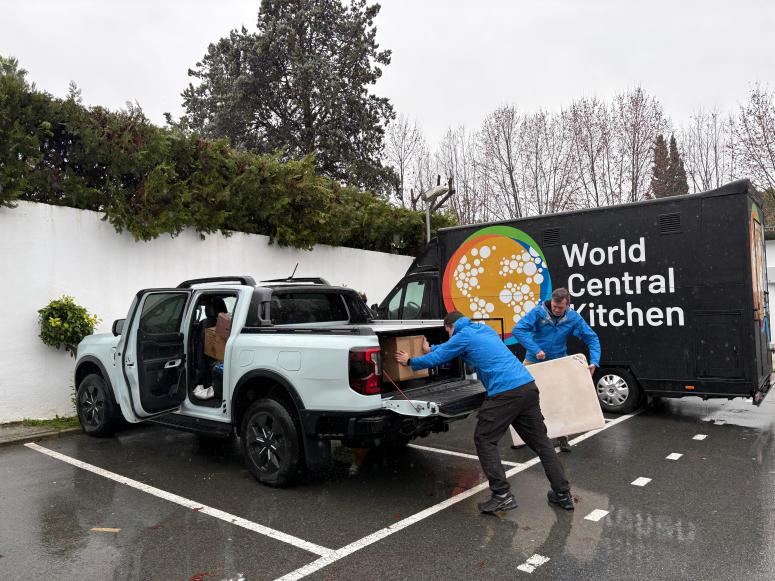Clean water flowing in the Kherson Region
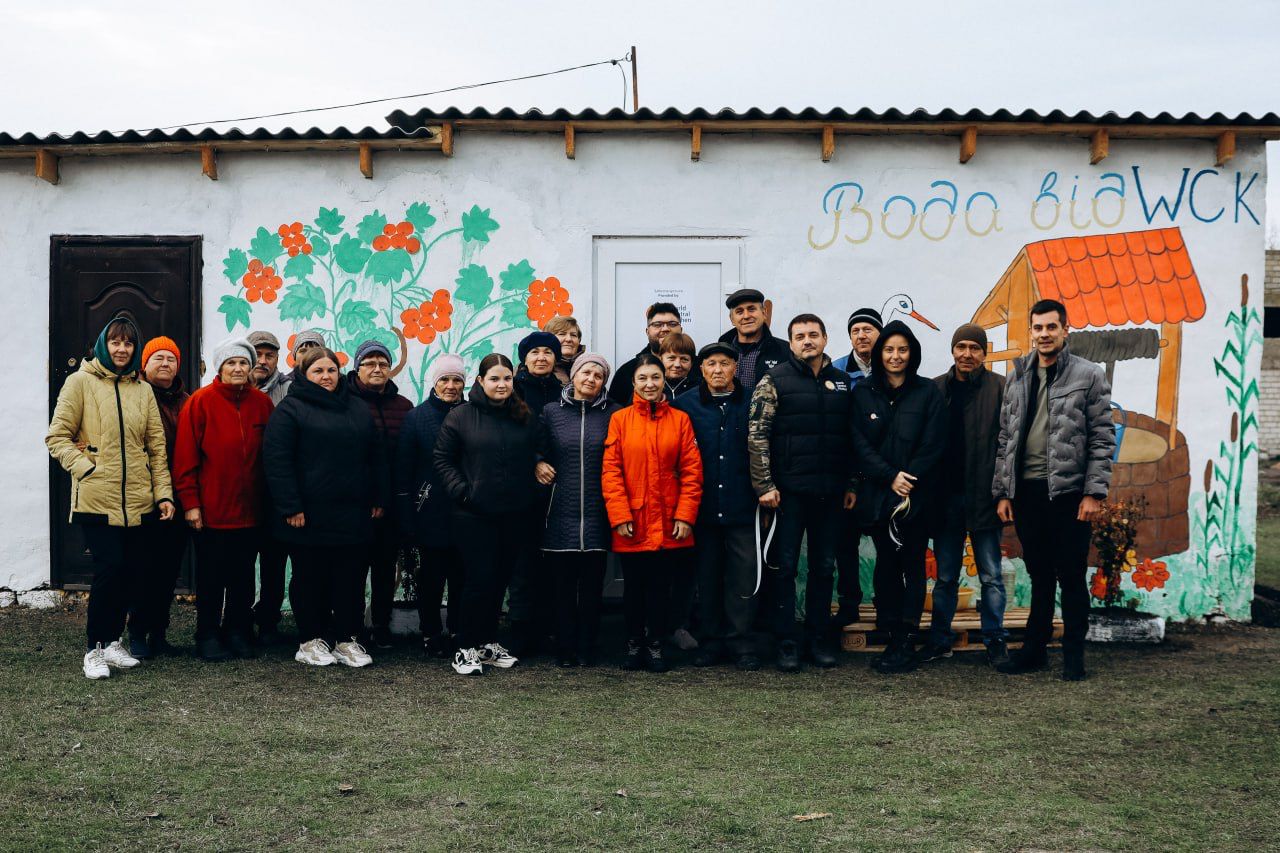
Lack of access to clean water is one of the most critical issues affecting Ukrainians in frontline communities. Relentless Russian bombardment and occupation have left many regions struggling to access safe drinking water. The situation is particularly pronounced in the southern region of Kherson, where the Kakhovka dam explosion in June had severe consequences. The bursting of the dam led to a dramatic rise in water levels that contaminated wells, rendering the water undrinkable.
Many communities in the area remain dependent on external support to access water, with volunteers and NGOs delivering water to affected communities putting themselves at great risk of attack. Water takes a long time to unload, and large delivery trucks are prime targets for Russian missiles. WCK teams recognized the need for an enduring solution and created an ambitious plan: revamping the water systems of several frontline communities. This approach aims to provide a lasting solution that establishes the communities’ self-reliance and safeguards their health and wellbeing.
WCK was one of many NGOs making regular deliveries of clean water to the Kherson region.
One of the communities where WCK implemented the plan is Mala Shestirnia, a small village in Kherson Oblast. Since the beginning of the war, the local residents have faced a severe water crisis. Russian forces completely destroyed water supply systems that once served five communities, including Mala Shestirnia. This left the village’s 600 residents without access to potable water. Beyond the obvious challenges of meeting basic hydration needs, the inability to access regular water impacts cooking and hygiene. The problem was so pronounced that families were at times unable to safely cook food provided by WCK.
Recognizing the urgency of the situation, WCK’s Kryvyi Rih team, led by Kateryna, took decisive action to find a long-lasting solution for all residents. “I’ve never been involved with water systems, so I had to learn everything from scratch,” Kateryna explained. “Another challenge was finding a suitable purification filter due to the very poor water quality.”
WCK’s Kateryna (center) and her husband Zhenya (left) worked together to get clean water to Mala Shestirnia.
Kateryna and her team eventually identified a manufacturer of a filtration system reliable enough to clean the polluted water. She acknowledges that her husband, Zhenya, made significant contributions. “Zhenya did a lot of work—searching for manufacturers, navigating negotiations, and securing discounts. Meanwhile, I worked closely with the communities,” she said. “I am very grateful to him for his help. We did it together.”
The filtration system draws the dirty water from a village’s existing water source and runs it through a tank equipped with state-of-the-art filters. The quality of the filtered water was tested to ensure it was safe to drink, and Kateryna was ecstatic to see the results. “The water quality is now exceptional,” she said.
When it came time to implement the system, the first stop was Mala Shestirnia. Upon learning about the planned installation, locals promptly mobilized to help. Within two weeks, they made remarkable progress: a building was outfitted to hold the water tank with filters in a location that provides round-the-clock access to clean drinking water for everyone in the community. The head of the community, Mykola, proudly shared about their efforts: “We’ve personally undertaken tasks like replacing the roof, insulating the walls, installing lighting, and painting the walls.”
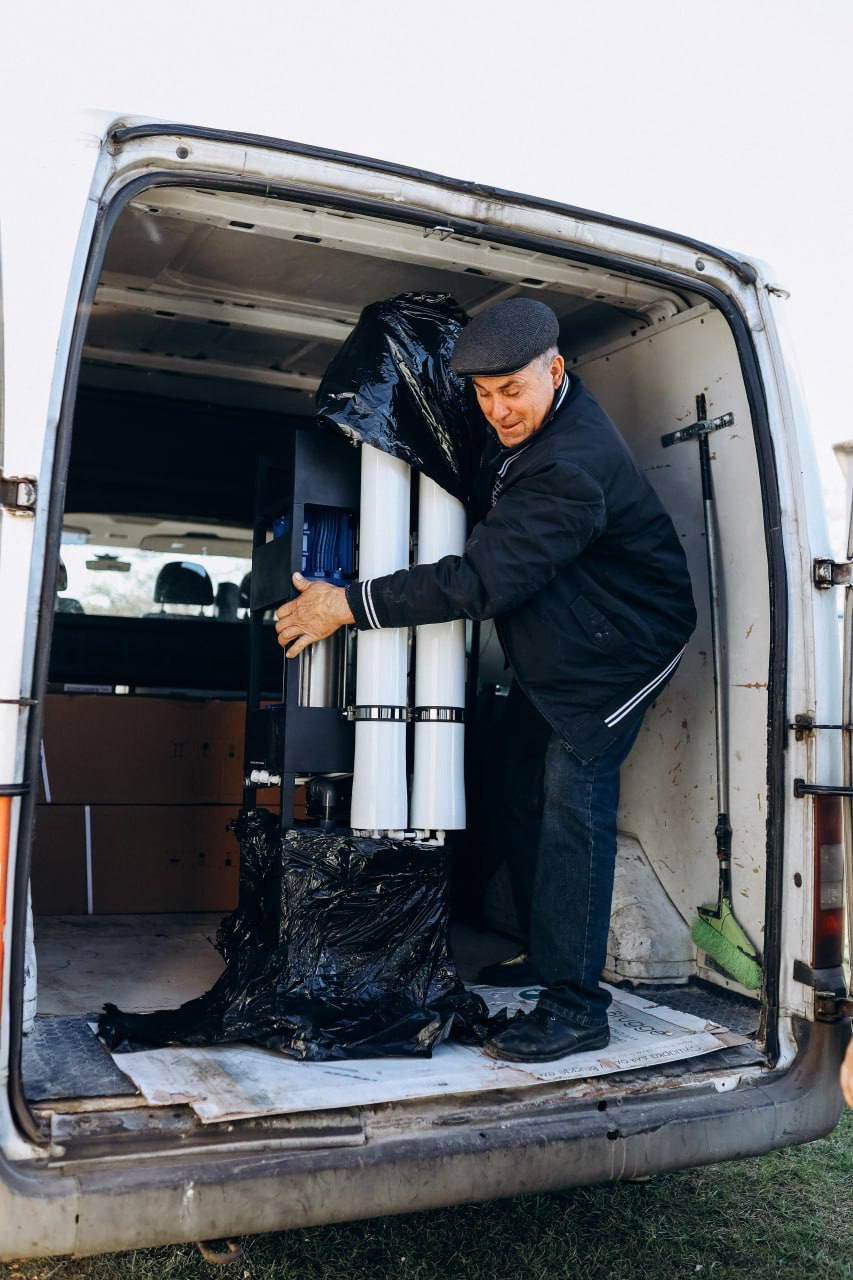
We’ve personally undertaken tasks like replacing the roof, insulating the walls, installing lighting, and painting the walls.
Mykola
Community leader in Mala Shestirnia
There was one last hurdle to overcome: the existing water pipeline was half a mile too short. WCK procured and provided the pipes they needed, and the community got to work immediately. The residents of Mala Shestirnia laid the final stretch of pipe to connect their new water source to the existing infrastructure. “We provided materials for the work and locals carried out the tasks on-site,” said WCK’s Kateryna about the collaborative effort. “Now, they are no longer dependent on volunteers or imported water. Residents can simply come and collect their own quality water, and that brings me great satisfaction.”
One of the residents, Tetyana, expressed her gratitude. “The entire district pitched in as much as possible, approaching the task with creativity—painting on the walls, planting flowers,” she said. “We are deeply thankful to the volunteers who boldly took on this project.” Olha, Mykola’s wife, has long advocated for the change that is just now taking place. Her aspiration was simple: for the people of Mala Shestirnia to have access to clean drinking water. “Thanks to the kindness of caring individuals, dreams are turning into reality,” she said.
Left: Tetyana stands in front of the mural painted by the community. Right: Olha offers cups for the community to try the new filtered water.
At the grand opening of the clean water tap, Olha brought cups from the school canteen to allow everyone to assess the quality and taste of the water. The verdict was unanimous: “Better than Morshynska water,” people remarked, comparing the newly filtered water to the well-known brand of bottled water found in Ukraine. The filtered water ran out pristine, transparent, and effortlessly refreshing. Now, families in Mala Shestirnia can cook meals for themselves using clean water, and can continue to stay nourished, hydrated, and hopeful.
Residents taste the clean, refreshing water for the first time.
Learn more about our #ChefsForUkraine response here. For real-time updates, follow WCK on Twitter, Instagram, and Facebook.
Help us continue supporting communities in Ukraine.










